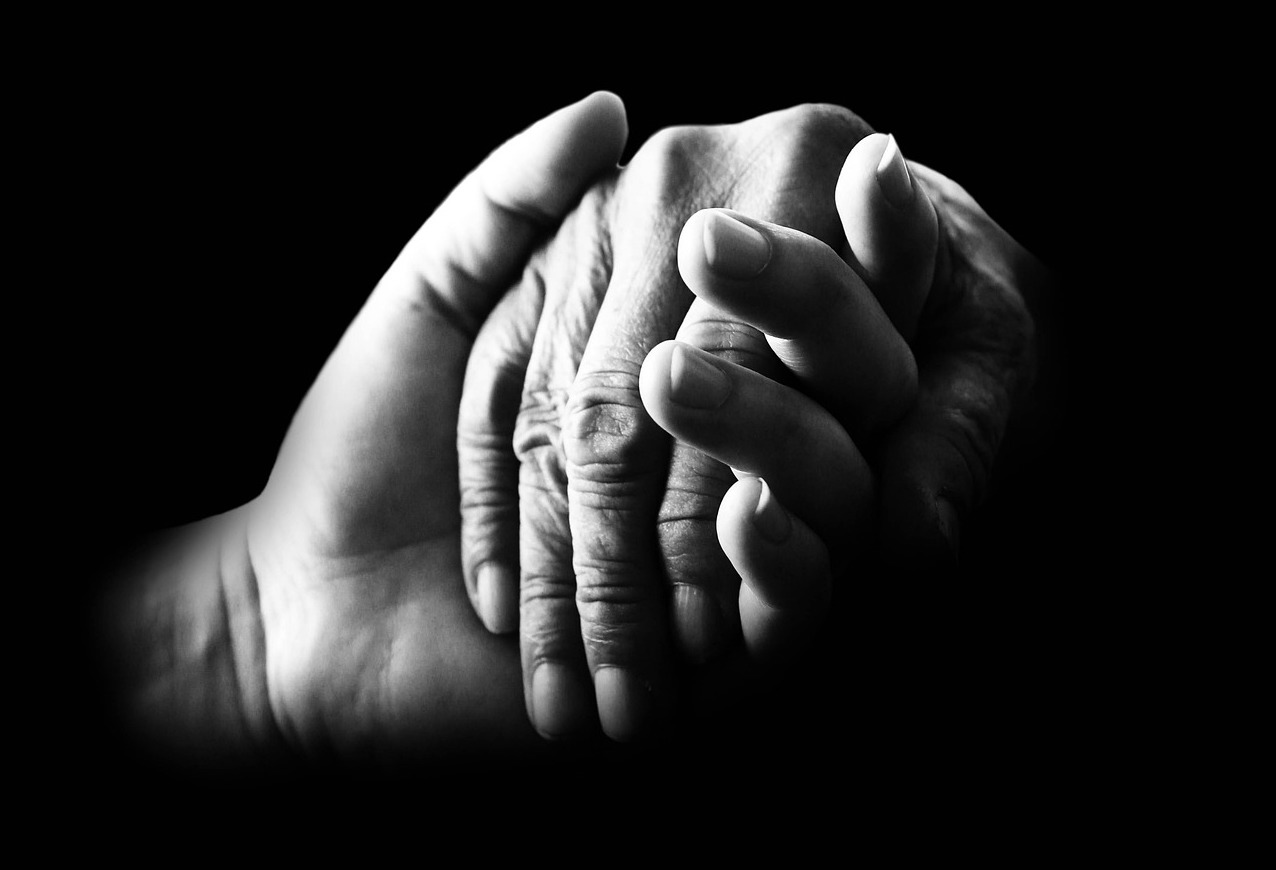‘Her Last Breath’: A Psychoanalyst’s Account of Bereavement
-
-
Anne Adelman
How can therapists contribute to a more open culture around death and dying? As we focus on supporting our clients through their grief, we can at times be in danger of estranging ourselves from our own. To coincide with Dying Matters Awareness Week 2023, which is encouraging conversations about death, dying and grief in the workplace, clinical psychologist and psychoanalyst Anne Adelman shares a very personal experience of loss.

You leave your office, apologising that you must cancel your sessions. Your mother is dying, you say, I just got a text. You nod as if you’ve said something not so out of the ordinary. Their concerned faces gaze at you with worry and warmth. You leave them behind.
You arrive before your sister and feel a pang of satisfaction. You are rarely first. Your mother lies under the green quilt, eyes closed, but she turns her head toward you when you take her hand. You think, maybe she will be ok. Then you think, she is skin and bones, light as a feather. You say her name. I’m here, you say. She looks at you but doesn’t speak. You touch her hand, and she pulls at you. You are not sure if she wants you closer or if she is pushing you away. You wait. She closes her eyes.
Your sister arrives and together you step outside to speak with the hospice nurse.
– Your mother may die soon, she says.
– But she might get better, you say stupidly. And then, more stupidly, when? When will she die?
– We can’t tell you that, says the hospice nurse.
You look at the nurse’s long twisted dreadlocks, with beads woven throughout, and you wonder, who did her hair? Her mother?
You stay all day. You watch for signs of improvement. There are none. As the day goes on, she grows restless, her body moving as if underwater. You think, she never learned to swim. You and your sister take turns holding her hand as her arms wave through the air.
At dusk, you notice the sliver of moon tucked above the rooftop across the street, bathed in pink and gold. You take a photo on your iPhone. You will want this photo of your mother’s last sunset. Later, you flick across the photo and notice your silhouette reflected in the window.
At night, after the family have eaten dinner together in your mother’s room, you help your sister pack the leftover food, snapping the plastic lids shut. Everyone says goodnight. You find you do not want to leave your mother alone, so you ask the nursing staff to bring a blanket for you.
The knock on the door is the night engineer, who has brought a cot. You drag it into your mother’s bedroom. You tell her goodnight and lie down next to her on her bed but she is too close to the edge and there is no room for you. She is still, her breath soft and slow. You feel her presence. In the night, you wake several times in a panic and rush to her. Still breathing. You go back to sleep.
In the morning, you see her hands, folded across the blanket, have turned blue-black. Half of her face is cold, but she is sweating. You cover her gently, brushing her hair from her forehead. Perched on her bed, you play music on your phone. You search for a Yiddish song – you can hear the music in your head – but can’t find it on YouTube.
So you play Beethoven sonatas. Your husband and daughter come but you send them to the room next door. You know what is going to happen, even though this is your first death. You are calm, you know what to do. Play the music, stroke her hair. Play the music, take her hand, stroke her hair. She breathes, faint puffs that barely break the surface of the air. You gaze at her face, her hands, as the stiffness creeps over her. You think she would like to stop, that she has had enough. You lean close, and say to her, It’s all right now, everything is all right. We are fine. Let go. You startle when a certain expression flickers across her face. You cannot place it. Pulling her lips back into a grimace, she pushes out one sharp hissing breath. When she is still, your heart flutters in alarm. You call out to your daughter, “Sweetie, get the nurse! Quick!” You gaze at her face, tender as a baby. You have seen her last breath.